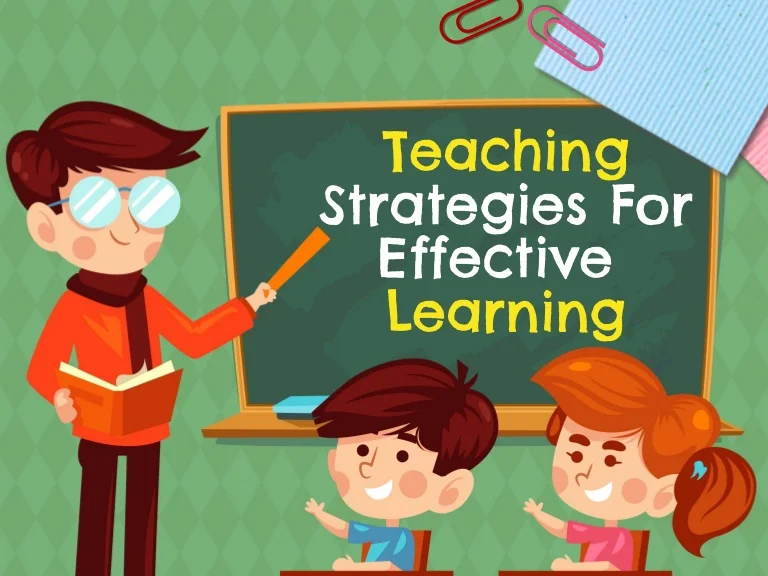Why Teachers Need Extra Income Streams
Teachers are some of the most dedicated and hardworking professionals, yet they often face significant financial challenges. The rising cost of living, student loan debt, and stagnant salaries have made it difficult for many educators to make ends meet. According to a recent survey, over 60% of teachers reported working a second job to supplement their income. This trend highlights the need for teachers to explore alternative ways to earn extra money.
One of the primary reasons teachers seek additional income streams is to achieve financial stability. With the increasing cost of living, teachers often struggle to pay bills, save for retirement, and cover unexpected expenses. By earning extra money, teachers can alleviate some of this financial stress and focus on their core responsibility: providing high-quality education to their students.
Another reason teachers need extra income streams is to pay off student loan debt. Many educators graduate with significant debt, which can take years to pay off. By earning extra money, teachers can accelerate their debt repayment and free up more money in their budget for other expenses.
Fortunately, there are many ways for teachers to make extra money, both online and offline. From online tutoring and course creation to freelance writing and selling educational resources, the opportunities are vast and varied. By exploring these options, teachers can earn extra money, achieve financial stability, and focus on what matters most: teaching and inspiring their students.
In the following sections, we will explore some of the most lucrative side hustles for teachers, including online opportunities, freelance writing and editing, tutoring and test prep, selling educational resources, and more. Whether you’re looking to earn a little extra money or build a full-time business, these ideas can help you get started.
Online Opportunities for Teachers: Monetize Your Expertise
The internet has opened up a world of opportunities for teachers to monetize their expertise and earn extra money. One of the most popular online platforms for teachers is online tutoring. With the rise of online learning, there is a growing demand for qualified teachers who can provide one-on-one instruction to students. Platforms like TutorMe, Chegg, and Varsity Tutors offer teachers the opportunity to connect with students and get paid for their services.
Another way for teachers to make extra money online is through course creation. Platforms like Udemy, Teachable, and Skillshare allow teachers to create and sell online courses on a subject of their expertise. This can be a lucrative way for teachers to earn passive income and share their knowledge with a wider audience.
Education blogging is another online opportunity for teachers to monetize their expertise. By creating a blog focused on education, teachers can share their knowledge and experiences with a wider audience and attract advertisers, sponsors, and affiliate marketing opportunities. Successful education bloggers can earn significant income through advertising, sponsored content, and affiliate marketing.
For example, teachers can create and sell educational resources, such as lesson plans, worksheets, and activity bundles, on online marketplaces like Teachers Pay Teachers. This platform allows teachers to share their resources with a wider audience and earn money from sales.
Additionally, teachers can also monetize their expertise through online coaching or consulting services. Many teachers have expertise in areas like special education, educational technology, or curriculum development, and can offer coaching or consulting services to schools, districts, or individual educators.
These online opportunities offer teachers a flexible and convenient way to earn extra money, often from the comfort of their own homes. By leveraging their expertise and experience, teachers can create a lucrative side hustle that complements their teaching career.
Freelance Writing and Editing: Turn Your Teaching Skills into Content Creation
Teachers possess a unique set of skills that are highly valued in the content creation industry. By leveraging their writing and editing expertise, teachers can create engaging content for educational companies, websites, and publications. Freelance writing and editing offer a flexible and lucrative way for teachers to earn extra money, often on a part-time or project basis.
One of the benefits of freelance writing and editing is the flexibility it offers. Teachers can choose from a variety of projects and clients, allowing them to work on topics that interest them and fit their schedule. Additionally, freelance writing and editing provide teachers with the autonomy to work independently, making it an attractive option for those who value independence and self-directed work.
To get started with freelance writing and editing, teachers can create a portfolio of their work, including samples of their writing and editing skills. They can also join freelance platforms, such as Upwork or Freelancer, to connect with potential clients. Networking with other writers and editors can also help teachers find opportunities and build their professional network.
Some popular types of content that teachers can create as freelance writers and editors include educational articles, blog posts, and website content. Teachers can also create and edit educational materials, such as textbooks, workbooks, and educational software. With the rise of online learning, there is a growing demand for high-quality educational content, making freelance writing and editing a lucrative opportunity for teachers.
For example, a teacher with expertise in science education could create educational articles for a science website or edit science textbooks for a publishing company. A teacher with expertise in language arts could create and edit educational materials for a language arts curriculum or write educational blog posts for a educational website.
By leveraging their writing and editing skills, teachers can create a lucrative side hustle that complements their teaching career. Freelance writing and editing offer a flexible and autonomous way for teachers to earn extra money, pursue their interests, and share their expertise with a wider audience.
Tutoring and Test Prep: Capitalize on Your Teaching Expertise
Private tutoring and test preparation services are in high demand, particularly in high-stakes testing environments. As a teacher, you have a unique opportunity to capitalize on your expertise and earn extra money by offering tutoring and test prep services to students. This can be done in-person or online, depending on your preference and the needs of your students.
To market your tutoring and test prep services, you can start by reaching out to your existing network of students, parents, and colleagues. You can also use social media platforms, such as Facebook and LinkedIn, to advertise your services and connect with potential clients. Additionally, you can list your services on tutoring platforms, such as Wyzant or Varsity Tutors, to reach a wider audience.
When setting rates for your tutoring and test prep services, consider the level of expertise you bring to the table, the demand for your services, and the rates charged by other tutors in your area. You can also offer package deals or discounts for long-term commitments to attract more clients.
To deliver effective tutoring sessions, it’s essential to create a personalized learning plan for each student. This plan should take into account the student’s strengths, weaknesses, and learning style, as well as their goals and objectives. You can also use a variety of teaching strategies and resources, such as textbooks, online materials, and educational software, to engage students and promote learning.
Some popular types of tutoring and test prep services that teachers can offer include math and science tutoring, language arts and reading comprehension, and test preparation for standardized tests, such as the SAT or ACT. Teachers can also offer specialized services, such as special education tutoring or English language learning support.
By offering tutoring and test prep services, teachers can earn extra money, pursue their passion for teaching, and make a positive impact on the lives of their students. This can be a rewarding and lucrative side hustle that complements a teaching career and provides a sense of fulfillment and purpose.
Selling Educational Resources: Turn Your Lesson Plans into Profit
Teachers spend a significant amount of time creating lesson plans, worksheets, and activity bundles for their students. By selling these educational resources, teachers can turn their hard work into profit and earn extra money. Online marketplaces, such as Teachers Pay Teachers, provide a platform for teachers to sell their resources to a wider audience.
To get started, teachers can create a store on Teachers Pay Teachers and upload their resources for sale. They can also create a website or blog to showcase and sell their resources directly to customers. Additionally, teachers can use social media platforms to promote their resources and reach a larger audience.
When creating educational resources for sale, it’s essential to consider the needs and preferences of potential customers. Teachers can conduct market research to identify gaps in the market and create resources that meet the demands of teachers and students. They can also use customer feedback to improve and refine their resources.
Some popular types of educational resources that teachers can sell include lesson plans, worksheets, activity bundles, and educational games. Teachers can also create and sell digital resources, such as printable worksheets and interactive activities.
By selling educational resources, teachers can earn extra money, share their expertise with a wider audience, and make a positive impact on the education community. This can be a lucrative side hustle that complements a teaching career and provides a sense of fulfillment and purpose.
For example, a teacher who specializes in math education can create and sell math lesson plans, worksheets, and activity bundles on Teachers Pay Teachers. A teacher who specializes in language arts can create and sell language arts lesson plans, worksheets, and activity bundles. By selling their resources, teachers can earn extra money and share their expertise with a wider audience.
Summer Camps and Workshops: Host Engaging Programs for Students
Summer camps and workshops provide a unique opportunity for teachers to share their passion and expertise with students in a fun and engaging way. By hosting programs on topics they’re passionate about, teachers can earn extra money, build their professional network, and make a positive impact on the lives of their students.
To plan a successful summer camp or workshop, teachers should start by identifying their target audience and the topics they want to cover. They can then create a detailed plan, including the program’s objectives, schedule, and budget. Additionally, teachers should consider the logistics of the program, such as the venue, materials, and staffing.
Marketing is a crucial aspect of hosting a successful summer camp or workshop. Teachers can use social media platforms, email marketing, and local advertising to promote their program and attract students and parents. They can also partner with local schools, community centers, and educational organizations to reach a wider audience.
When executing the program, teachers should focus on creating a engaging and interactive experience for their students. They can use a variety of teaching strategies, such as hands-on activities, group projects, and guest speakers, to keep students engaged and motivated. Additionally, teachers should be prepared to adapt to any challenges that may arise during the program.
Some popular types of summer camps and workshops that teachers can host include STEM programs, language arts programs, and arts and crafts programs. Teachers can also host programs on specialized topics, such as coding, robotics, or environmental science.
By hosting summer camps and workshops, teachers can earn extra money, share their expertise with a wider audience, and make a positive impact on the lives of their students. This can be a lucrative side hustle that complements a teaching career and provides a sense of fulfillment and purpose.
For example, a teacher who specializes in science education can host a summer camp on topics such as biology, chemistry, or physics. A teacher who specializes in language arts can host a workshop on creative writing, literature, or communication skills. By hosting these programs, teachers can earn extra money and share their expertise with a wider audience.
Affiliate Marketing and Sponsorships: Partner with Educational Companies
Affiliate marketing and sponsorships offer teachers a unique opportunity to partner with educational companies and promote their products or services. By partnering with these companies, teachers can earn extra money, build their professional network, and provide valuable resources to their students.
Affiliate marketing involves promoting a company’s products or services and earning a commission on any sales generated through your unique referral link. Teachers can join affiliate programs offered by educational companies, such as textbook publishers or educational software providers, and promote their products or services on their website, social media, or email newsletter.
Sponsorships involve partnering with a company to promote their products or services in exchange for a fee or other forms of compensation. Teachers can partner with educational companies to promote their products or services in their classroom, on their website, or through social media.
When partnering with educational companies, teachers should consider the benefits and potential drawbacks of these partnerships. Benefits may include earning extra money, building their professional network, and providing valuable resources to their students. Drawbacks may include the potential for bias or conflict of interest, as well as the need to disclose the partnership to their students and colleagues.
Some popular educational companies that offer affiliate programs or sponsorships include textbook publishers, educational software providers, and online course platforms. Teachers can research these companies and their programs to find opportunities that align with their interests and expertise.
By partnering with educational companies, teachers can earn extra money, build their professional network, and provide valuable resources to their students. This can be a lucrative side hustle that complements a teaching career and provides a sense of fulfillment and purpose.
For example, a teacher who specializes in math education can partner with a textbook publisher to promote their math textbooks and earn a commission on any sales generated through their unique referral link. A teacher who specializes in language arts can partner with an educational software provider to promote their language arts software and earn a fee or other forms of compensation.
Creating and Selling an Online Course: Share Your Expertise with a Wider Audience
Creating and selling an online course is a lucrative way for teachers to share their expertise with a wider audience and earn extra money. With the rise of online learning, there is a growing demand for high-quality online courses that provide valuable skills and knowledge.
To create a successful online course, teachers should start by identifying their area of expertise and the needs of their target audience. They can then develop a comprehensive course outline, create engaging course content, and design interactive activities and assessments.
Once the course is created, teachers can sell it on platforms like Udemy, Teachable, or Skillshare. These platforms provide a range of tools and resources to help teachers market and sell their courses, including course templates, marketing materials, and payment processing.
To market their course effectively, teachers should develop a marketing strategy that includes social media promotion, email marketing, and paid advertising. They can also leverage their professional network, including colleagues, students, and parents, to promote their course and get feedback.
Some popular types of online courses that teachers can create include courses on academic subjects, such as math, science, or language arts, as well as courses on skills and hobbies, such as photography, cooking, or coding. Teachers can also create courses on topics related to education, such as classroom management, lesson planning, or educational technology.
By creating and selling an online course, teachers can earn extra money, share their expertise with a wider audience, and make a positive impact on the lives of their students. This can be a lucrative side hustle that complements a teaching career and provides a sense of fulfillment and purpose.
For example, a teacher who specializes in math education can create an online course on math skills, such as algebra or geometry, and sell it on Udemy or Teachable. A teacher who specializes in language arts can create an online course on writing or literature and sell it on Skillshare or Coursera.







